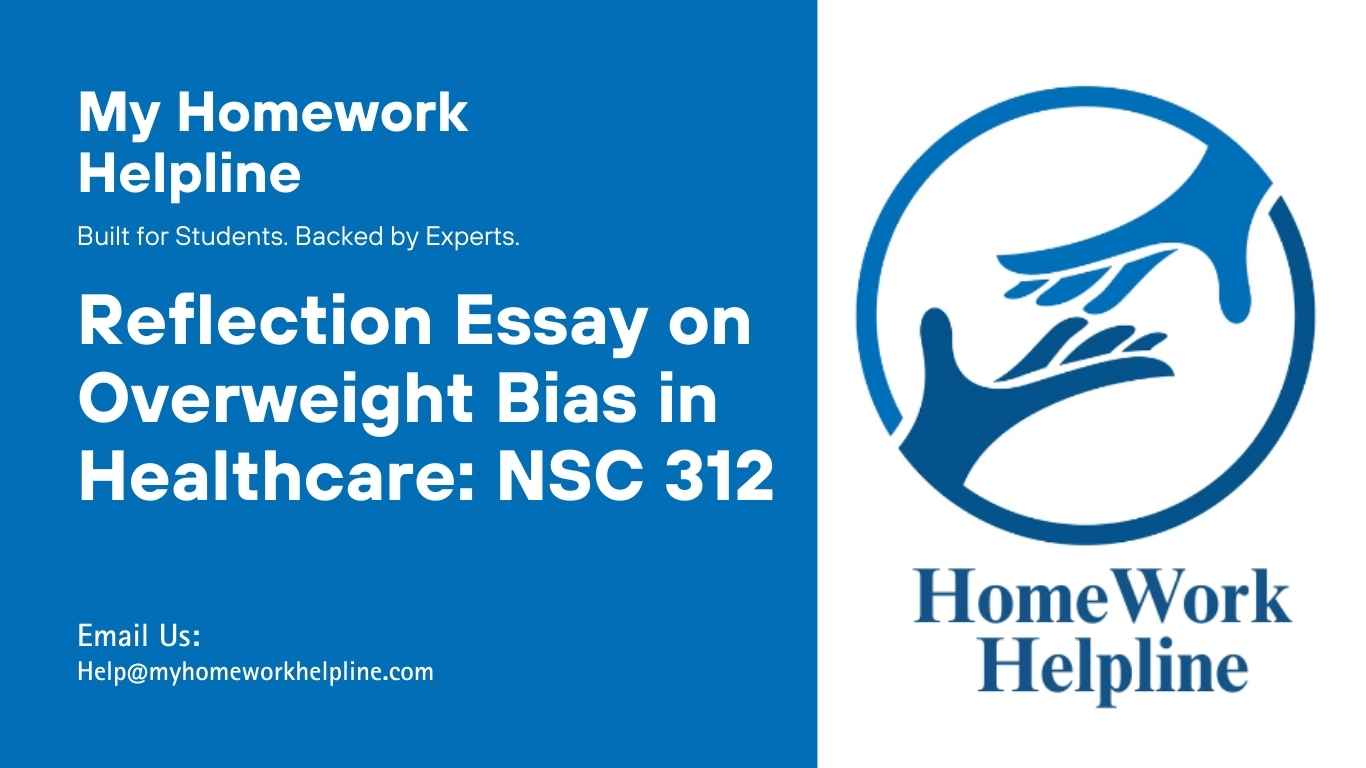Reflecting on Overweight Bias in Healthcare: NSC 312 Reflection Essay
It is essential that we reflect bias in healthcare in terms of weight, to assist in reducing intentional and unintentional discrimination that might impact the quality of care patients receive (Alberga et al., 11). Learning about overweight stigma in the healthcare sector has also allowed me to understand that my reaction towards the patients may make them feel disrespected, unwelcomed, or inadequate, therefore negatively impacting the encounter quality and the patient’s willingness to seek medical care. I have learned that behavior resulting from the attitudes relating to a stigma group is referred to as enacted stigma. Enacted stigma in relation to care providers has the potential to affect the patient in immeasurable and measurable ways.
Struggling with your reflection essays or NSC 312 assignments on topics like overweight bias in healthcare? Our Nutrition Homework Helpline offers expert homework assistance and assignment support. We guide you through structuring your essays, analyzing patient-centered care, and discussing enacted stigma, helping you create insightful and high-quality work. Get professional assignment help today to complete your NSC 312 essay confidently and meet academic standards while saving time.
I have learned that enacted stigma can reduce the quality, or the quantity, of patient-centered care. It also signals to the patient that they are being treated based on their stigma identity, thus, in turn, affecting the patient’s perception, of compliance with, the guidelines of the care providers (Alberga et al, 21). I have also learned that there are several ways in which the healthcare provider’s attitude may impact the quality of patient-centered care. Care providers may engage less in patient-centered communication with a patient that they perceive as not likely to be adherent. In some cases, care providers can have less respect for these patients hence impacting positive communication.
Therefore, it is vital to learn about these biases and how to overcome them. I have learned that to address these biases against overweight individuals, it is vital that we identify biases and assumptions that may prevent us from offering quality care. Additionally, we can practice patient-centered communication, and help in developing a welcoming environment for overweight patients.
Work Cited
Alberga, Angela S., et al. “Weight bias and health care utilization: a scoping review.” Primary health care research & development 20 (2019).

